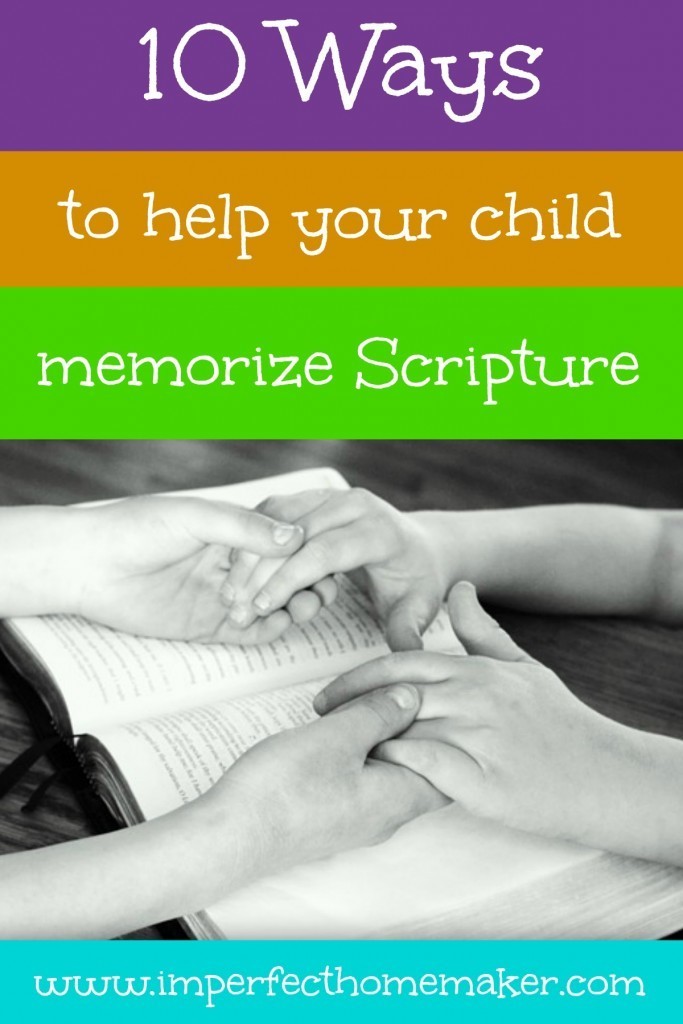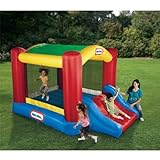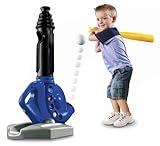Homeschooling: The Good and the Bad
If you're considering homeschooling your children, you definitely want to go into it with your eyes wide open. Even if you know without a doubt that God wants you to homeschool your children (we certainly do), you should still be aware that there are both good and bad aspects to homeschooling. Just because it's the right thing for your family, don't expect it to necessarily be all sunshine and roses. Will you allow me to share the good side and then to make you aware of the bad side of homeschooling as well? When you're aware of the not-so-good things you can much more easily make preparations to overcome them.
The good:
* You make the decision about what your children learn. You have total control over what subjects your children are learning. You can protect their minds from things that are contrary to your worldview. There is no concern over academics that may be less-than-stellar or expectations that may be unreasonable for a child with learning difficulties.
* You make the decisions about how your children learn. There is no way a school classroom can tailor its teaching style for each child. Yet each child differs. As a home schooling parent, you can teach your child in the style that best fits him or her, and you can tweak your teaching style as needed.
* You get to choose the curriculum. This ties in with the “what your children learn” note listed above. You can decide how many books, worksheets, crafts, and so forth that your student does. You can reject or accept aspects of various curricula and/or design your own.
* Your child gets one-on-one instruction. Time and again, studies have shown that children learn well with individual instruction.
The bad:
* Home schooling takes time. Not only do you have to commit to the actual teaching time; depending on the curriculum, you may have to research and prepare lessons, copy or print out worksheets, maps, exercises, etc., and keep careful track of your child's progress. This all means less time to run errands, clean the house, cook meals, etc.
* Depending on the laws and regulations in your area, you will have to present a portfolio or submit your child to standardized testing. This means you have to keep careful records.
* Home schooling can cost money. Some curricula are very inexpensive or even free, but often the less expensive options take up a lot more time (searching for library books, printing your own materials, etc.) Finding something that is less labor intensive or finding the right materials for your child can cost much more, sometimes as much as $1000 a year.
* Criticism and even contempt from others unfortunately comes with the territory of home schooling. Those who tend to doubt themselves or who are overly concerned with what other people think may find this aspect of home schooling stressful.
Does the fact that there are some bad aspects to homeschooling mean that you shouldn't do it? Not at all! Sending your child to school will come with both good and bad aspects also. You just need to be prepared for the not so pleasant parts so that you can prepare yourself properly.
Homeschooling through the good and the bad will take work, but it will be rewarding!
You might want to take a look at these other posts too:
Help! I’ve Decided to Homeschool. What Now?
It may seem like homeschooling is just too difficult or complicated, or takes too much time. It can also seem overwhelming – where do you start? If you want to home school but are not sure where to begin, here are some tips that may help.
I have moved all of my homeschooling posts to christianhomeschoolfamily.com.
You can go here to read this post at the new site.
When Your Teen is Headed the Wrong Direction
Full disclosure: I have never parented a teen. My oldest child is only 7. I'm not claiming that I will get it perfect when my own children are teens.
However, at the same time, sometimes things seem to be more clear when you are not personally involved in the situation. It's a lot easier to think objectively when your own emotions are not tied to a situation. I know I'm not in your shoes yet, and I fully respect that, but I also know that my thinking comes from an unbiased point of view.
So, with all that said, here goes:
I see many parents of teens or young adults who are not happy with the choices their children are making. They don't want them doing some of the things they do, but they feel powerless to do anything about it. Some of their reasons for not intervening are as follows:
- “I can't make his choices for him forever.”
- “Telling her she can't do that will only estrange her and make her more rebellious.”
- “I'm just not sure what to do, so I will let things play out and hope for the best.”
I have watched various families who deal with teen issues and even watched things go on in my own family growing up where I have thought, “How in the world would I deal with this if I were the parent?! What a tricky situation!”
I've always been a ponderer, so rather than feel sorry for the parent and move on with my life, I almost always mull over and search out what I believe to be the Biblical answer to these tough questions so that I will not be caught off guard when tricky parenting situations inevitably arise in my own life.
When it comes to the teen who is running around with the wrong friends, wasting too much time playing video games, wearing inappropriate clothing, watching ungodly movies, or you name it, how should a Christian parent act?
As I was pondering this question, the Lord brought to mind the passage about Eli and his sons where God said he would judge Eli because his sons made themselves vile and “he restrained them not.”
Yes, it was crucial for Eli to restrain his sons' wickedness because of their leadership position, but did you know your teenagers are also leaders? They are leaders whether they want to be or not. I cannot tell you how many times my son has worn a certain thing, said a certain thing, or did something a certain way because (insert teenager he knows) does it that way. Your teenagers are an example to everyone around them – younger children who look up to them, their co-workers, their friends, their siblings. Are you going to allow your teen to go unrestrained when they are leading so many people – for good or for evil?
It's okay for you to tell your daughter she needs to go change out of her immodest clothing. It's okay for you to tell your son he may not have a smartphone because he is using it to interact with inappropriate people on social media. You are the parent; he is the child, and as long as he lives under your roof, you get to call the shots.
Will your child be angry with you? That's very possible. But loving your child isn't necessarily doing what you have to do to keep them from being angry with you. Loving your child is doing what's best for them spiritually even though it will hurt as a parent to hear the “You're so mean!”s and see the angry looks.
The direction your child is heading determines their destiny. The Bible tells many times that the path of the foolish leads to destruction but the path of the righteous leads to blessing. Which direction is your child headed?
 Is it truly loving to allow your child to continue down the wrong path – the dangerous path – just because you don't want them to be angry with you?
Is it truly loving to allow your child to continue down the wrong path – the dangerous path – just because you don't want them to be angry with you?
Yes, parents of teens. Restraining your teen is the right thing to do.
However, I completely understand the concern that doing so will cause your child to become embittered and withdraw from you.
What is vitally important throughout the entire process is to show unconditional love and grace, and to show through your actions how much you value your child.
Steps to follow when you must restrain your teen:
1. Apologize
If you have not already been working to maintain a close relationship with your child, it is super important that you apologize to them for your lack of time and attention. Explain to them that you have allowed other things to get in the way of your relationship but that from now on you are committed to making them a priority.
2. Explain
When it's time to tell your child that they are no longer allowed to go out with those friends or watch those movies or use those apps, explain to them why. Even though they may not be happy about your decision, they still need to know deep down inside that you are ultimately doing it because you care about them and that you're not just on a “power trip” as I've heard so many teens accuse their parents of doing.
3. Spend time
Now that you've committed to your child that you will make them a priority, it's time to do it! Take your teenagers on dates, eat dinner together as a family, turn your phone off when they start talking to you and give them your undivided attention. Go to great lengths to be at every ball game, show up with chocolate when your daughter is emotional, and say yes to as many things as you possibly can, especially when it involves the family spending time together. These things will take sacrifice, and you will have to give up some of the things you might want to do, but that is exactly how your teenager will know how much you value them – when you are willing to give up your own agenda to do what's best for them.
4. Extend unconditional love, forgiveness, and grace
Remember that your teenager has a sin nature – just like you! They will make mistakes, but that does not mean they need a lecture every time or an over-the-top punishment. Speaking with gentleness and understanding will go much further than displaying anger and frustration.
5. Grow together
Do you want your teenager to be impacted in an incredible way? Be open with them in sharing your own struggles with sin and grow along with your teen. They will see that mom and dad aren't claiming to be perfect and don't expect them to be either. How much more motivating would it be for a teen to humble himself and seek help when he needs it if he knows his parents are not viewing him in a spiritually condescending way? If he has seen their own honesty and watched them use the Word of God to overcome their own sin?
In conclusion, I will once again admit that I have never parented teens and definitely don't have the “corner on the market” when it comes to parenting advice. But I do have the Word of God, and I firmly believe that parents of teens are doing their children a grave disservice when they turn away with a sigh rather than addressing their child's sin head-on.
Should they pray about it and ask God to change their child's heart? Absolutely. But you are still your child's parent and God has given YOU the responsibility to lead them.
Not only do I have the Word of God, but I have my own experience as a teen to look back onto and observe my own parents who have raised 4 children who are now grown and all serving the Lord.
Were there times my parents had to tell me that I couldn't go somewhere or wear something or watch something? Most definitely. But what's interesting is that even though I wasn't happy about it, I was deep down inside very glad for those boundaries and restraints. A mom and dad who wouldn't let me do whatever I wanted spoke VOLUMES to me – it said “They care!” I think having parents who turned away with a sigh would have been devastating emotionally. Watching them turn away wordlessly would say to me that I was not worth the effort and that they truly didn't care where I ended up in life. I am sure I hurt them sometimes by things I said or eye-rolls that I gave them. But at the same time I was so secure in knowing that they were watching out for me. I knew without a doubt that they did not hate me.
Parents of teens, please don't end up like Eli. When others speak of your family in the future, “Whatever happened to ____'s kids?”, don't let the answer be a set of downcast eyes, a shake of the head, and the sad commentary that “he restrained them not.”
To the Policeman Who Put My Life in Danger
Dear Mr. Policeman,
Perhaps by the title of this post you're already on the defensive, wondering what you've done wrong this time. It seems like you can never please anyone no matter how hard you try.
But maybe it will surprise you to know that I am not angry nor am I going to accuse you of wrongdoing.
In fact, my purpose is just the opposite.
I'll spare you and anyone else reading this the details of what happened, but while you were headed to an emergency, you did something a little out of character and put me in potential danger by the way you were driving. It shook me up pretty badly when I realized what had just happened.
But the more I considered the incident, the more I found myself appreciating you and hoping that I could encourage others to do the same.
Perhaps you had assessed the situation much more rapidly than I could have and you knew there was no real danger even though it felt that way to me.
Or perhaps you were so pumped full of adrenaline that your brain didn't quite react the way you knew it should have had you not been in such a high intensity situation. I actually did a little quick search on adrenaline and found several forums where policemen and other emergency workers were discussing how they were frustrated at the way they'd driven in an emergency situation and were hoping for some pointers so that it wouldn't happen again.
I appreciated that these policemen were concerned for the safety of everyone on the road and wanted to do everything in their power to make sure they were protecting everyone involved. I believe you feel that way too. Just because you may have made a mistake one time doesn't mean that cops are power-hungry jerks who don't do anything except drive fast, eat donuts, and hand out tickets just for fun. I hope more people will realize that.
If this incident wasn't a mistake – awesome. That means you knew exactly what you were doing and even though it felt scary to me, I can trust that you are protecting me.
If it was simply an adrenline-induced lapse of clear thinking, may I remind anyone reading of a pertinent fact?
Heroes are still human.
None of us should expect a policeman to have superhuman abilities. However, sir, the difference between your human body and that of an average civilian is that yours has the word hero attached to it.
So instead of calling you out for yesterday's incident, I want to thank you for putting your life on the line day in and day out for the citizens of this country. You endanger your own life and work so incredibly hard with so little to show for it. I for one would like you to know that I'm grateful.
I'll close with Paul Harvey's thoughts on “What is a Policeman?” because I feel it is so true and something I wish every citizen of this country would understand.
Thank you for all that you do.
*This post has been heavily edited from its original version for the sake of clarity. I want my point to be perfectly clear. I want every policeman and civilian to have no doubt that our policemen deserve a great big “Thank You!” instead of the disgraceful treatment that seems to be popular these days.*
10 Ways To Help Your Child Memorize Scripture
Teaching our children how to memorize scripture should be a major emphasis in our parenting. If we desire them to live according to God's Word, we must help them learn it! (<— Click to tweet that.)
Children can memorize much more quickly and easily than adults, and it is very important for us as parents to make sure they are putting as much scripture into their minds as possible during these early years. What goes in now is going to stay there for a lifetime. Do we want it to be nonsense or do we want it to be the Word of God?
Here are 10 ways you can help your child memorize scripture:
1. Scripture songs
Nothing makes memorizing easier than setting something to music. That's why I searched for Scripture songs for kids and ordered several CDs for them. We use KJV exclusively in our family, and I had a hard time finding something that was not another version. When I did find something in KJV, the music was either too “jazzy” for our personal standards or else it sounded like a funeral dirge! (I thought the point was to use a catchy tune to make the song memorable?) But I did finally find something, and it is perfect!
Bible Songs for Kids from Bible Truth Music has catchy tunes that still fit into our personal music standards and are exclusively KJV. They have 8 different albums, and you can order them in either CD or mp3 format.
My kids have only listened to the first CD twice and they are already walking around the house singing scripture. I love it!
There are a lot of songs on each album too. I bought 3 to start with, and that is plenty for now, although I do want to own the whole collection eventually.
2. Copywork
Another way to help kids memorize and make it “stick” is to have them copy it. (Bonus! This doubles as handwriting practice, so we're saving lots of time too!)
You can google around for “free scripture copywork”, but it is a little difficult to find KJV materials. You can also create your own with a handwriting worksheet generator; however, you're not going to have all the cute little pictures on it if that's a big deal to you.
A final option I have found is the Write Through the Bible curriculum. It's a full year curriculum, and it not only has the child copy the verses, but gives them vocabulary words, and comes back periodically to review previous verses learned. They have this available in KJV. You can find that here (digital/printable version) or here (print version)
They also have a junior version (digital version here) (print version here) for children who are still learning to form their letters.
3. Memorize as a family
Children are naturally more motivated to do something when they see mom and dad working at it too. We work on memorizing together as a family before bed each night. You could also do this before meals. Right now we are working on a passage in Proverbs 6. We say the verse aloud several times together and then see who can say it by themselves. We review that verse for several nights and when it's obvious everyone knows it well, we start working on the second verse. When everyone can say that one by themselves, we say the first verse and the second verse together. We review that several nights, then start on the next verse, and so on. I have a whole set of printable family scripture memory cards with some good passages to learn as a family.
4. Use an incentive
We don't want our kids to memorize scripture just because they'll get a prize for it, but at the same time I think a nice incentive for memorizing a large portion of scripture or a large number of individual verses is in order. I want my kids to know that their memorizing scripture is very important and that I will reward them for their hard work on it.
For example, my mom bought this armor of God playset for my son, but she told him that if he really wanted it he needed to work for it by memorizing Ephesians 6: 10-18.
Our teens at church earn money off the cost of teen camp by memorizing entire chapters (and entire books!) of the Bible.
It is possible to hide God's Word in your heart in a BIG way when you really want to!
5. Memorization programs
If it is at all possible for your child can be involved a Scripture memory program at church, do it! We have King's Kids at our church; some do AWANA; some do something else. I learned most of the scripture I know during AWANA as a child. You and your child both will never regret having a set time each week for them to come together with other children to memorize and recite scripture. What they learn there will be with them for the rest of their life.
6. Choose a verse from their devotions
Are your children spending their own personal time with the Lord? (This is what I have found to be very helpful in guiding them with that.) I encourage my kids to choose one verse from their Bible reading that day to memorize during their quiet time. This also helps them pay attention a little better to what they are reading.
7. Hand motions
When you incorporate as many of the senses into memorization as possible, you greatly increase the chances of remembering what you've learned. Young children seem to especially enjoy adding hand motions in to help them remember the next part of the verse. For example, when we memorized Proverbs 6:10 – “1Yet a little sleep, 2a little slumber, 3a little folding of the hands to sleep” – I 1laid on my hands on one cheek, 2laid on my hands on the other cheek, and 3folded my hands on my chest. It's very simple, but it helped my 3 year old remember the verse much better.
8. Different voices
Repetition is the key to learning, but to make sure it doesn't become boring, try to mix up what you do. Kids think it's funny to say the verse in different voices. “Let's say it in our high voice/low voice/opera voice/hillbilly voice/etc. You can also have them turn around backwards, stand up, sit down, etc.
9. Make sure they understand it
It's much easier to memorize something if you understand what it means. When my children are just trying to say a bunch of words, they will have trouble, but if they know the concept behind the verse, their mind flows with the general idea and they can get through the verse. Even if they can't get through it word perfectly, they still know what the verse is talking about and they can continue on without getting stuck.
10. Scripture art in the home
When you look at something enough, you memorize it without even thinking about it. Keeping scripture prominently displayed in your home will help you and your children both hide more of God's Word in your hearts. You can find several printable scripture verses here on the blog. (Psalm 51:7, Psalm 46:10, Philippians 4:4, Proverbs 31:26, Phililppians 4:8)
10 Gift Ideas For Four Year Old Boys
Since my little guy is about to turn 4, I decided it was time for me to come up with some gift ideas for 4 year old boys!
I've compiled these ideas based on his current interests, so if you're wondering whether the 4 year old in your life would truly like these, I know my little guy would definitely say yes!
These would really be appropriate for kids anywhere between age 3 and 5.
You can find purchasing information for each item by clicking on its photo below.
1. Ride-on motorcycle
We are SO into motorcycles at our house, and a ride-on would absolutely MAKE HIS DAY!
2. The bounce house would definitely be one of those big splurge gifts. When you consider how many endless hours of fun it would provide it would pay for itself in the long run.
3. Castle blocks
This is something that we already own (it was a previous gift) and it gets a lot of use by my (almost) 4 year old.
4. Scooter
Every boy needs a set of wheels! A scooter is the perfect riding toy for a child who can't yet ride a bike.
5. Bouncy Ball
This is another toy we already own which gets HOURS AND HOURS of use!
6. Baseball pitcher and tee
This is about the age where my boys start showing an interest in sports. A tee is perfect for getting them started and then they will have the automatic pitcher for when theyare a little more advanced.
7. Hexbug
His older brother just got one and I know he would get a kick out of having his own. What is so fascinating about these I don't know, but they seem to love watching them scurry around. They like to make mazes for them out of blocks!
8./9. Soccer ball and goal
It is so cute to watch kids this age kick a soccer ball! They can get pretty good when they practice! My little guy wants to play on a team at the Y as soon as we will let him.
10. Kiwi Crate subscription
We got a sample box and we all loved it (including mom!) It was the perfect thing for doing a project without wearing out a small attention span. Mom loved it because we did a project without dragging out thousands of supplies. Having the exact amount of supplies meant that once the project was completed, the mess was already cleaned up.






























